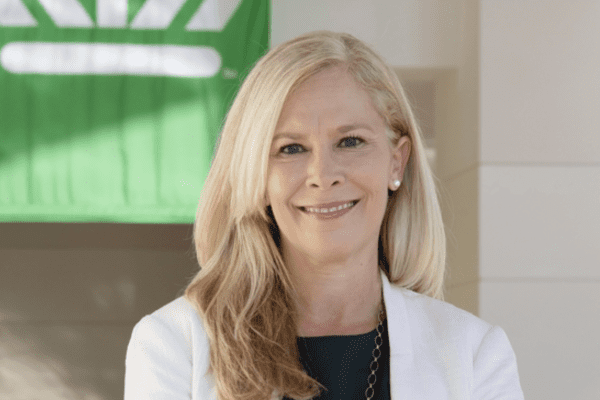Shaping the Future of the Queen City

Up to 100 residents arrive in Charlotte daily, which means there is no shortage of people or jobs. The challenge is improving how people navigate the city while managing its overall development.
“It’s what I call growing pains,” said Alyson Craig ’13 M.S., who serves as planning director for the city of Charlotte. “Charlotte has the elements of a big city but feels small sometimes. It’s got a lot of attractiveness, which is bringing in new residents, and it’s growing quickly toward fulfilling its world-class potential.”
A native of Charleston, South Carolina, Craig worked in marine and coastal ecology before branching into real estate. As a program coordinator for the College of William & Mary’s marine laboratory, she provided science-based information to elected officials and regulatory staff.
“I began to question what was driving the need for housing and different kinds of development. That ultimately led me to planning and real estate,” she said.
CHARLOTTE BECKONS
A desire to further her interest in urban development drew Craig to Charlotte a decade ago. She enrolled in the Belk College of Business’s Master of Science in Real Estate program, earning an advanced degree in 2013. She embarked upon a career with real estate developer Grubb Properties and eventually returned to UNC Charlotte to direct the MSRE program and co-direct the Childress Klein Center for Real Estate.
Now, Craig manages the Charlotte Planning Department and its growing team of more than 100 employees. The department oversees community area planning, property rezoning requests, geographical information systems, historic districts, urban forestry protection and development-related permits.
“I understand the practicality of the real estate world. Whether you’re a developer, property manager or planner, we’re all working together to build a city that we are proud of,” Craig said. “I’m highly motivated by fast-paced, high-stakes roles that result in the betterment for something larger than myself.”
PLANNING FOR THE LONG TERM
Craig and her office laid the groundwork for generational projects for Charlotte when she joined the city in 2018 as deputy planning director. She helped create Charlotte’s first unified development ordinance, a legally binding document that consolidates and modernizes eight development ordinances that the city adopted during the past 30 years.
With Charlotte’s population having doubled during the intervening years, developers were using outdated ordinances to continue building housing, high rises and hangouts, which city planners say don’t properly account for that growth.
“I knew from my work in other municipalities, Charlotte’s vision lacked clarity. You had to look at 50 different area plans to piece together what could happen long term.”
In June 2021, Charlotte adopted its first comprehensive planning document in 45 years, which enabled Craig and her team to reestablish public engagement using long-term goals.
Craig’s team reapproached the public engagement process of the comprehensive plan as COVID-19 spread into the region in 2020. “Great challenges create great opportunities,” Craig said. “Prior to the pandemic, it was difficult for many residents to participate in public meetings due to factors such as lack of transportation or childcare or competing work schedules.
“A hybrid approach to meetings allowed for greater public participation. We’re still working through what that looks like,” Craig explained. Officials released the second draft of the UDO in June 2022, and a summary of changes were recommended in July. In August, the Charlotte City Council adopted the UDO.
GROWTH GUIDED BY RESEARCH
A member of the Childress Klein Center for Real Estate Advisory Board, Craig considers the center an asset for the region. She noted it is among the nation’s most active research hubs in real estate. “The annual State of Housing Report comes to mind,” Craig said. “It’s an incredible opportunity to have the University, Belk College and the center connect dots that join data and science to help policy makers make informed decisions that reduce barriers to affordable housing and housing supply.”
Through the MSRE program — now in its 10th year — real estate students have the opportunity to network and learn from Charlotte-based practitioners, travel abroad, and join the Student- Managed Real Estate Investment Fund.
As a result, Craig says the program is supplying talented real estate professionals who can help bring the city’s vision to life. “It’s important for the classroom experience to inform students about how real estate works, but then also to integrate them into the field’s practitioner side — developing relationships, networking, getting real-life experience and shadowing professionals,” Craig said. “The program is creating a pipeline for companies in the real estate industry. An industry that is so important to Charlotte and its future growth.”